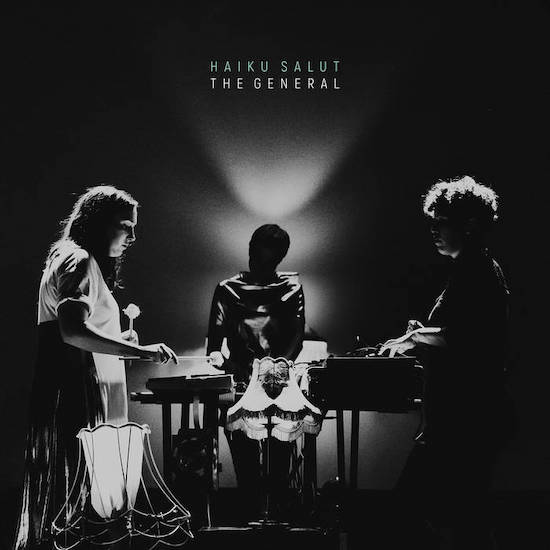On their three previous records, the Derbyshire instrumental trio Haiku Salut have been concerned with conjuring: summoning detailed visions through their glitchy, pastoral electronica. On their fourth album, however, their gaze has become reflective, with this record being a commission to score the 1926 silent Buster Keaton masterpiece The General. Haiku Salut could be a curious fit for this – certainly, anyone looking for an evocation of the honky tonk contemporary to that era of silent film will be disappointed. Instead, Haiku Salut have delivered one of their strongest works to date.
The corner of neoclassical occupied by Haiku Salut over the last half-decade has no doubt been made more popular by Spotify, its playlists marketing neoclassical as a kind of lifestyle accessory for frazzled office workers. This benefits the genre’s more bland iterations – take Public Service Broadcasting, with whom Haiku Salut have collaborated. Whilst Haiku Salut occupy a similar turf, they thankfully continue to offer something more impressionistic, and more continuously rewarding.
Take ‘Loves’, early in the album, which on the surface appears a straightforward, faintly woozy waltz. Repeat listens however bring to the surface a swooning optimism in its ascending synth line. It’s worth noting that since Haiku Salut’s folktronica debut, the ‘folk’ element of their sound has largely been shunted. Indeed, The General marks the point at which their use of traditional instrumentation has almost entirely exited their sonic palette. This is a progression and allows the trio to occupy new terrain confidently. The oscillating synth workout of ‘Deserters’ carries much of Boards of Canada’s crackly, pastoral sinister, something furthered on the faintly trip-hop, ‘The Escape’.
And whilst the source material of the film The General straddles comedy and drama, it’s melancholy that Haiku Salut continuously hone in and accentuate. The dancefloor arpeggios that make up ‘Going Back’ are underscored by celestial choral vocals, the effect being somewhere between the ecstatic and the mournful. On the strength of this record, it’s hard to imagine that this will be the only time Haiku Salut will operate in film scores.


